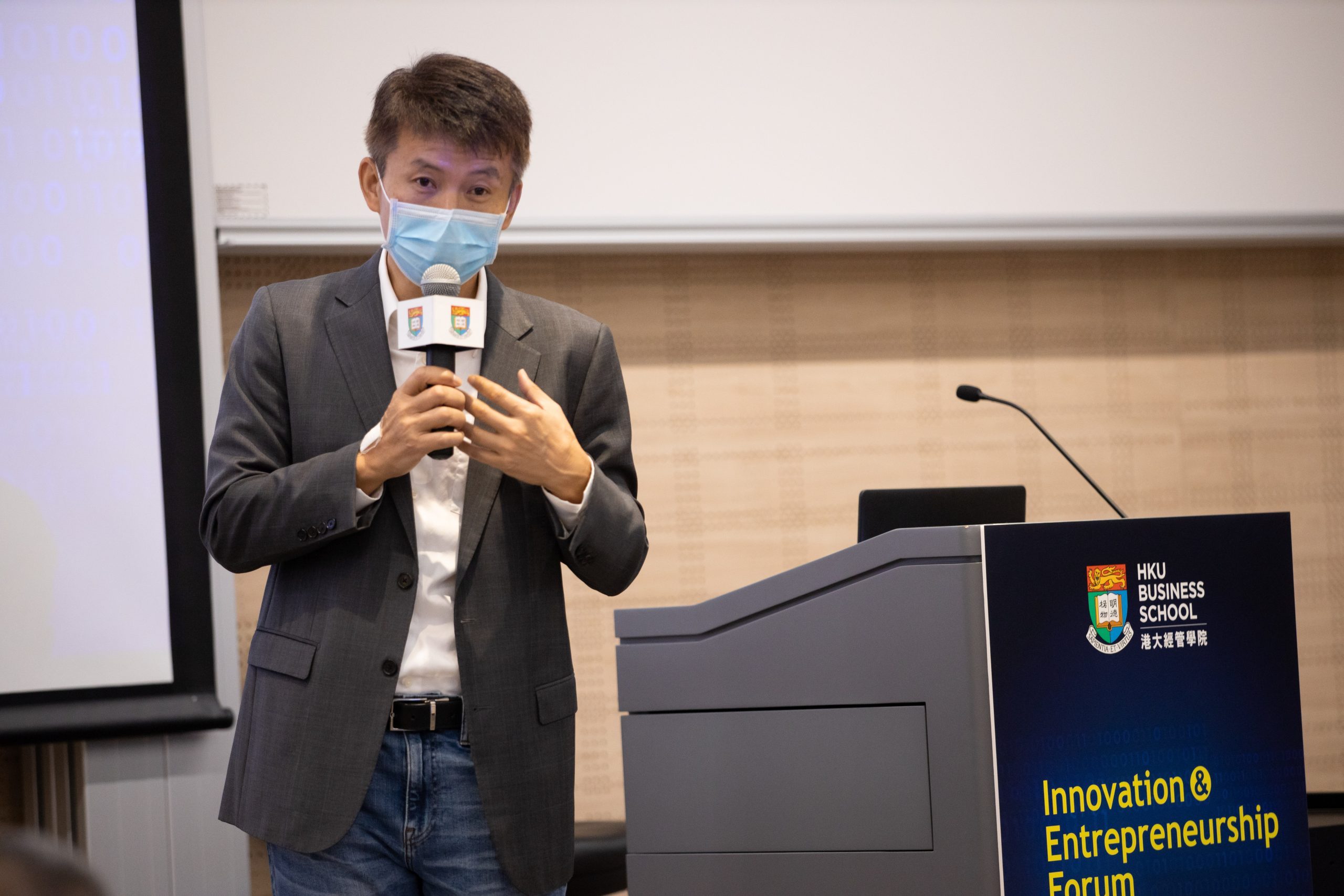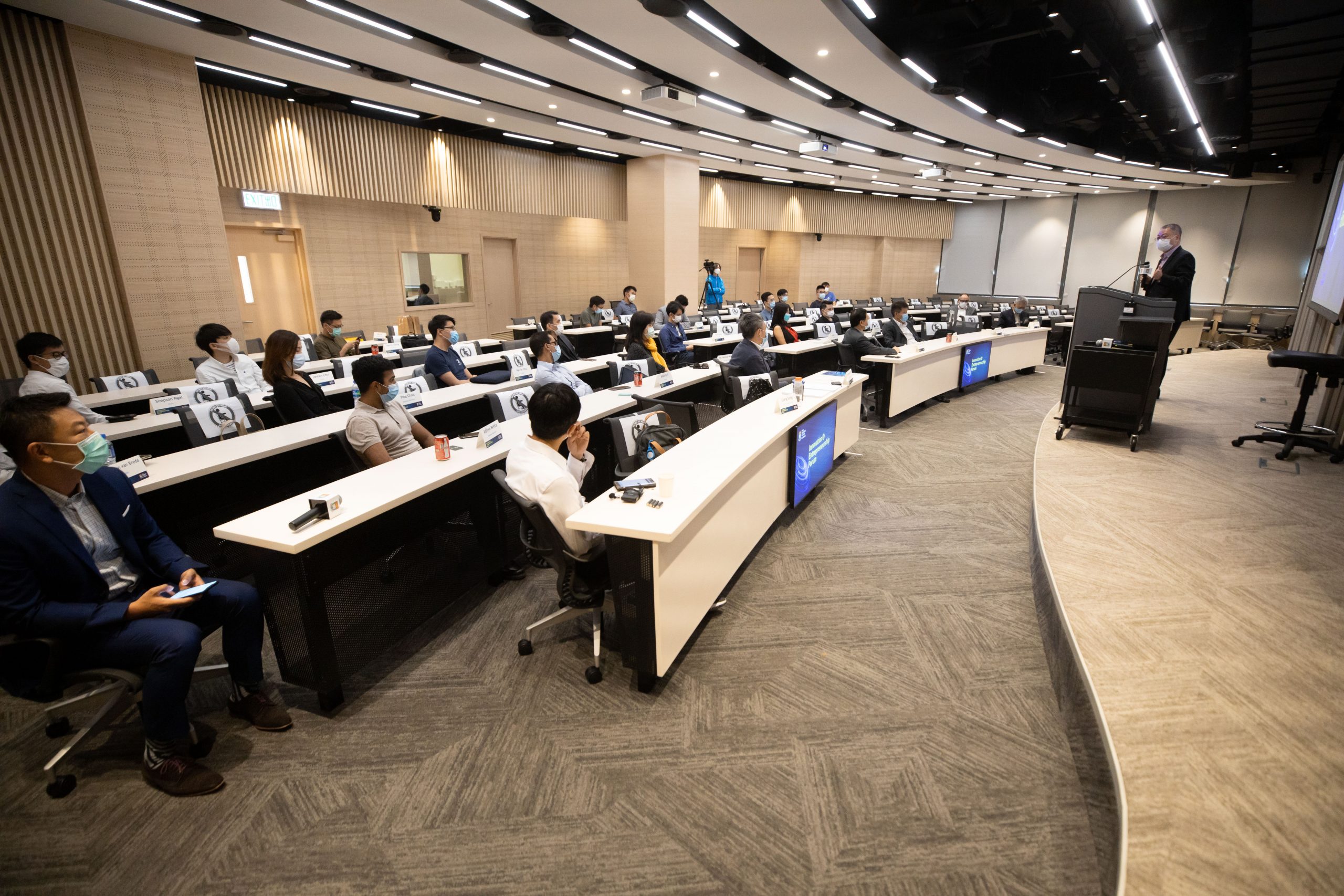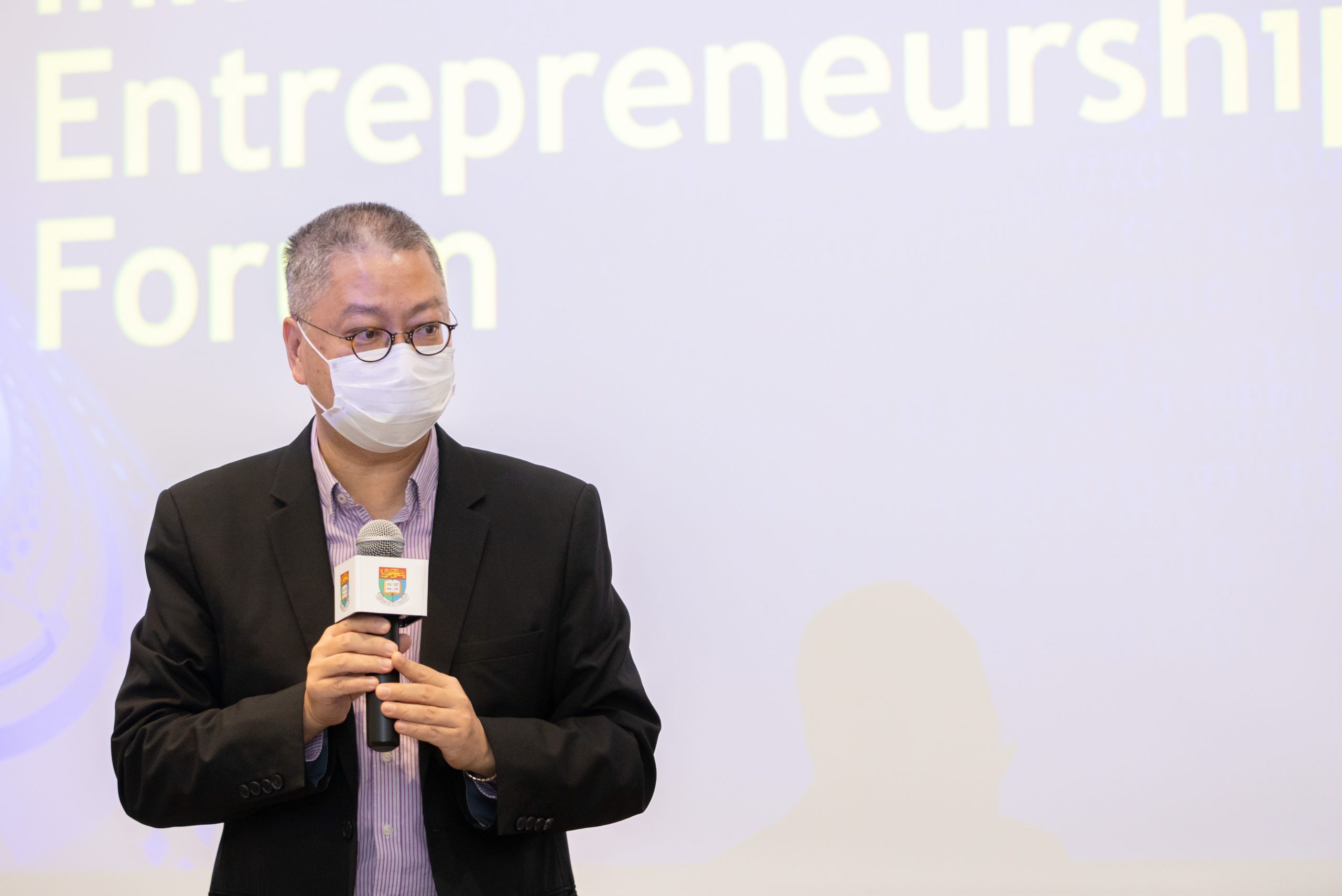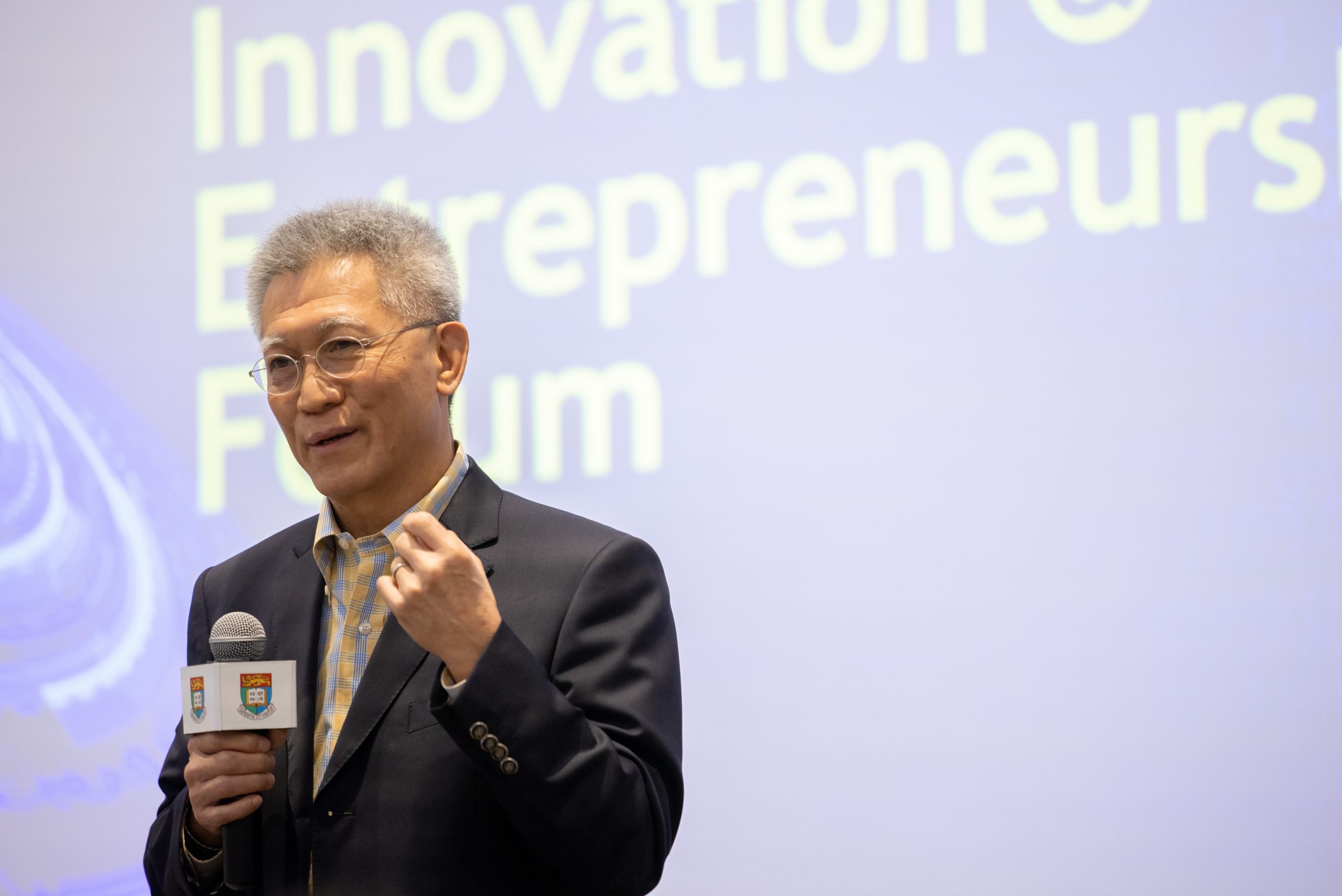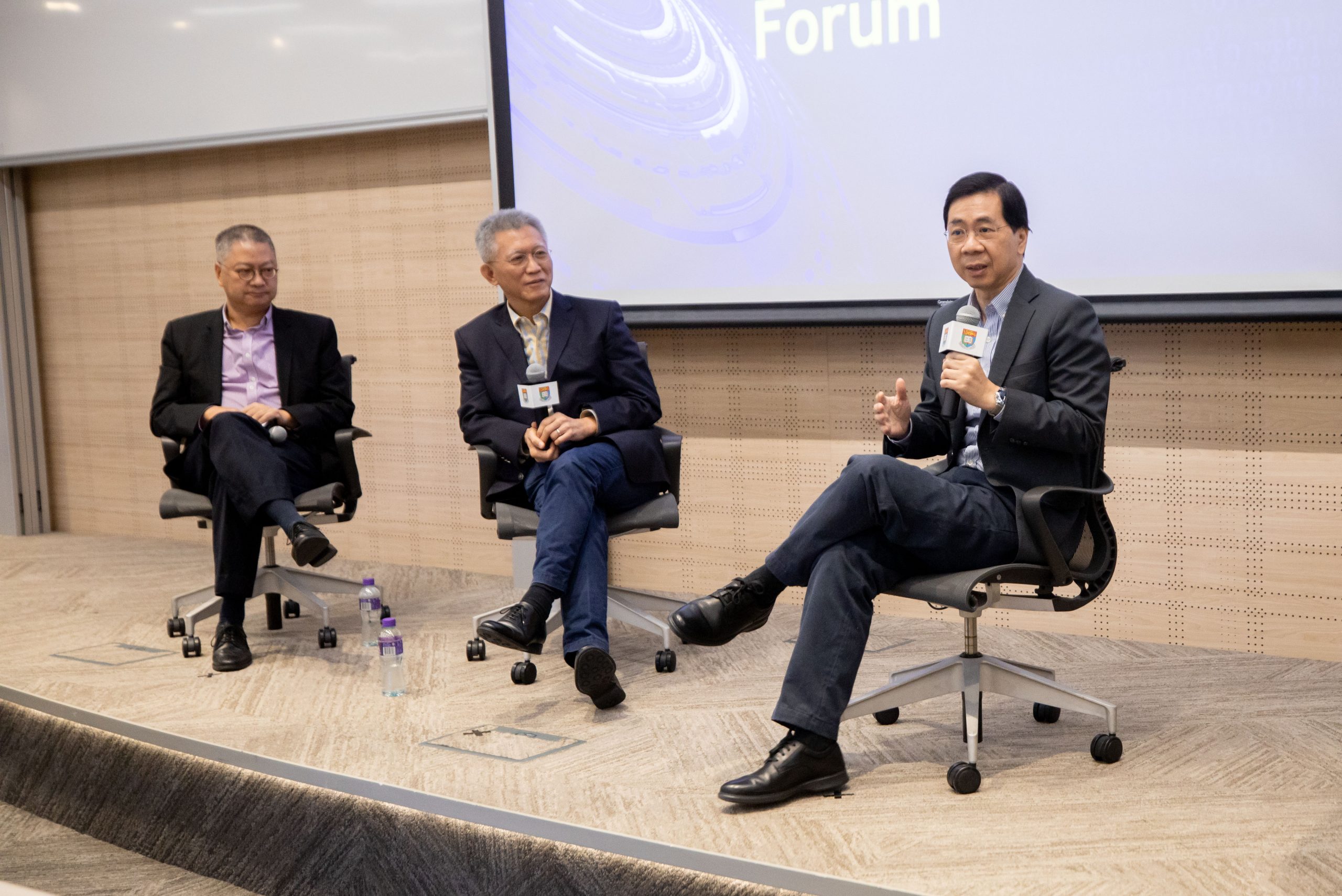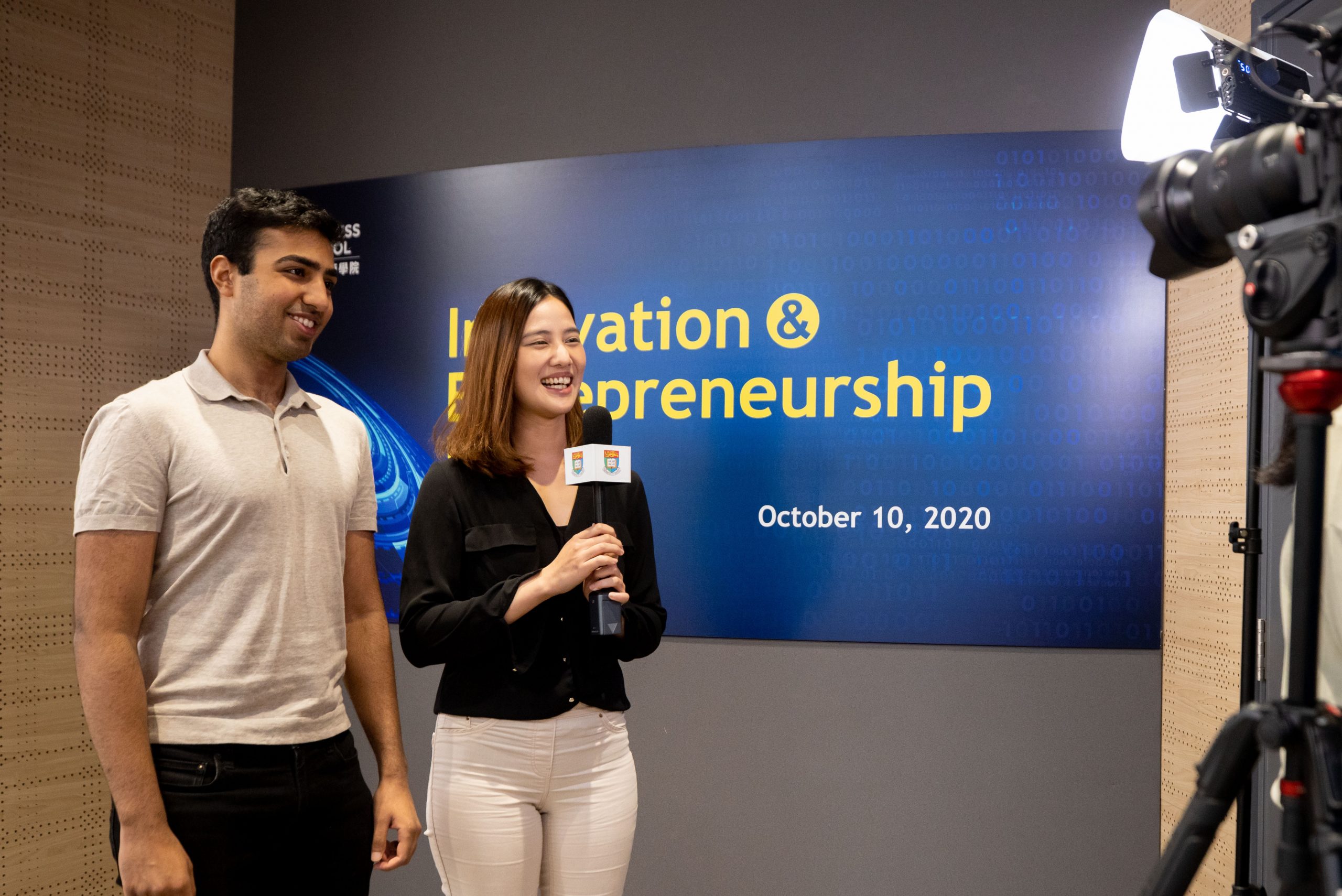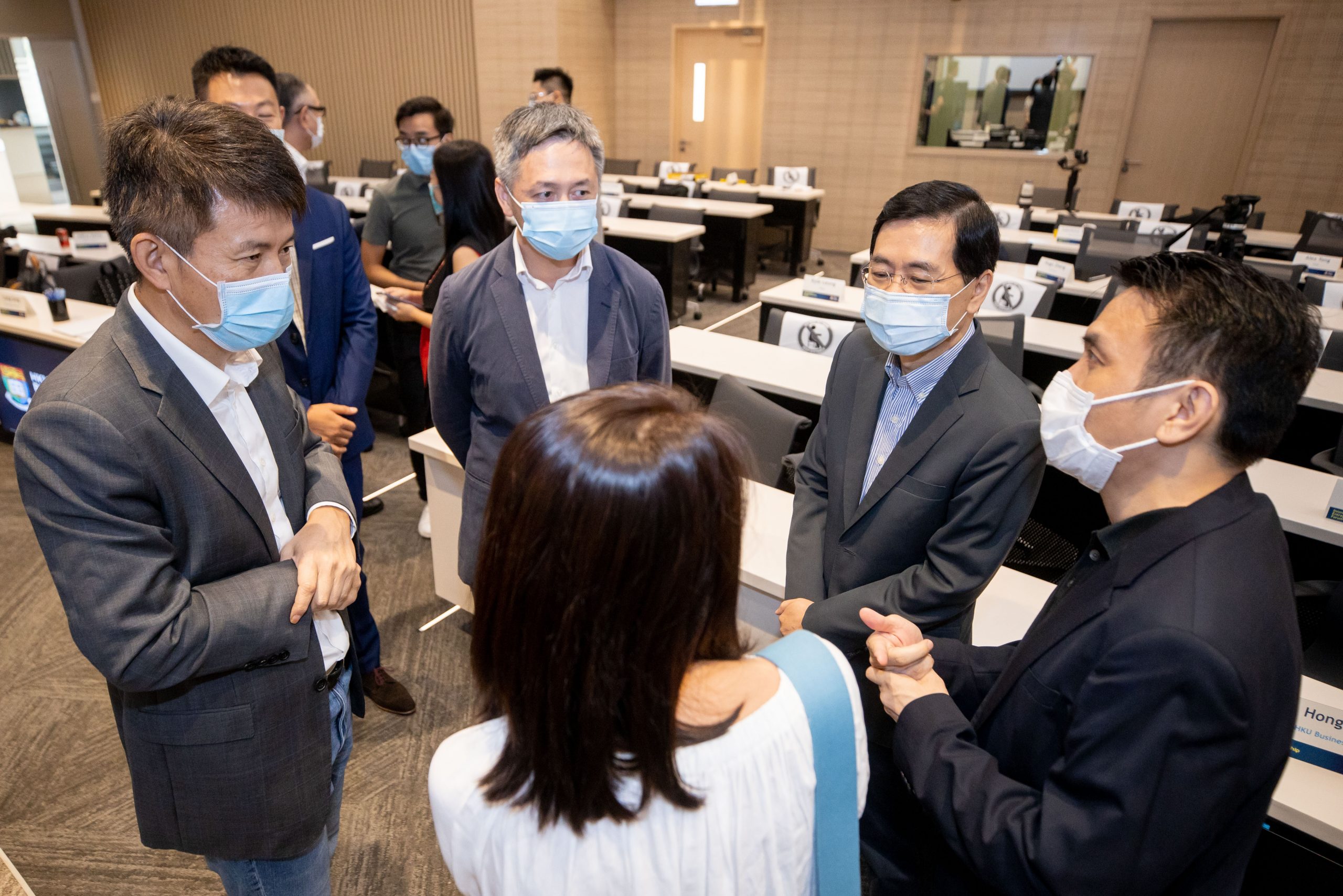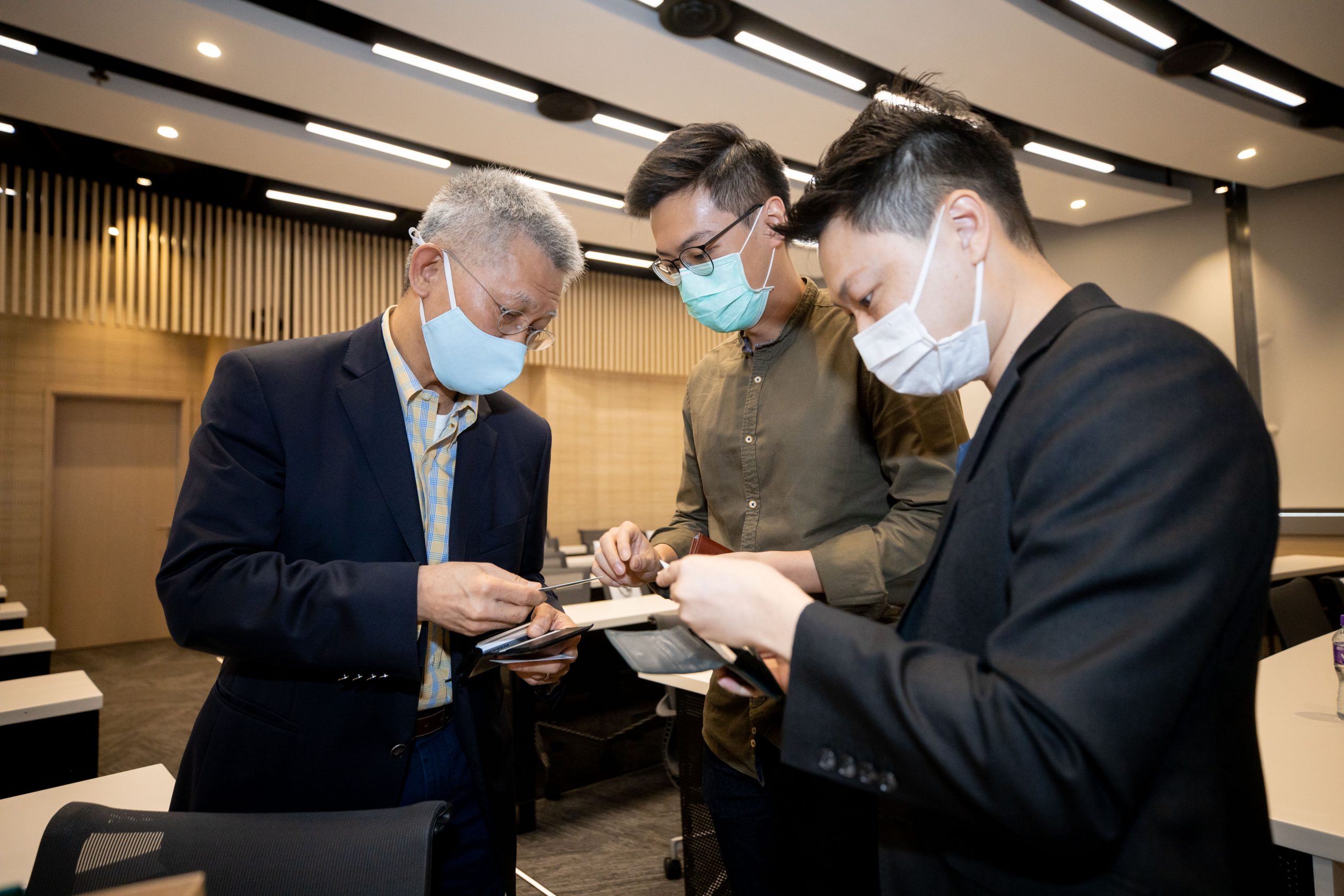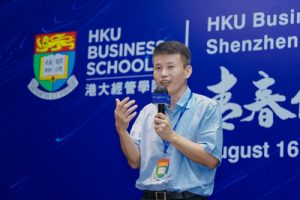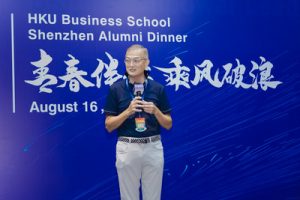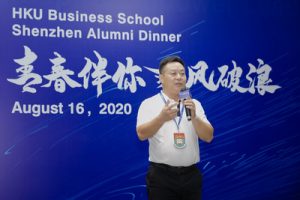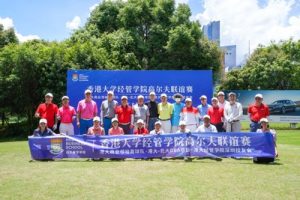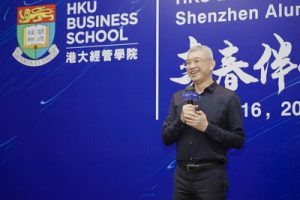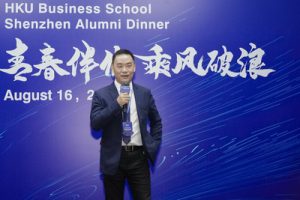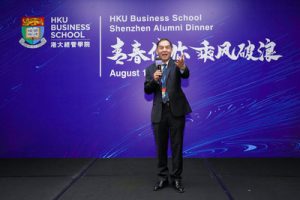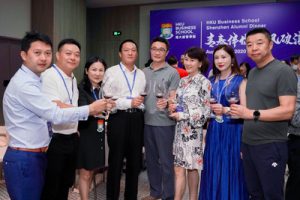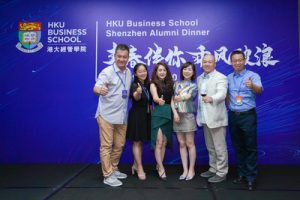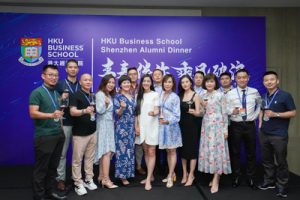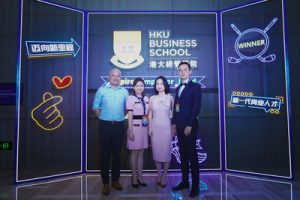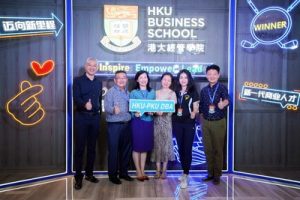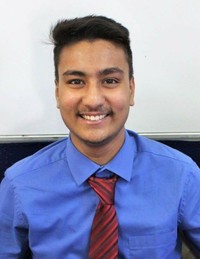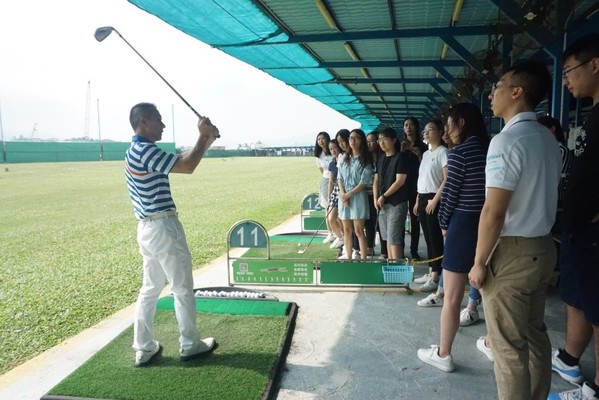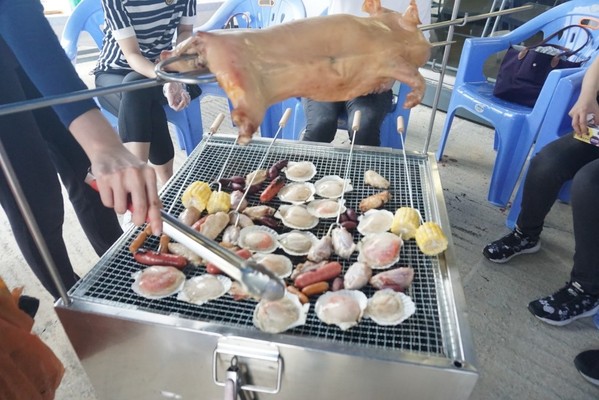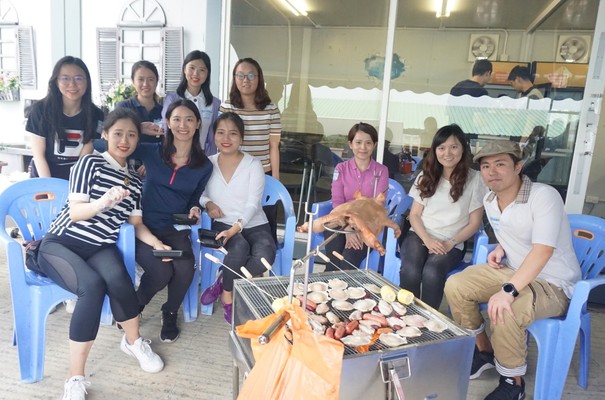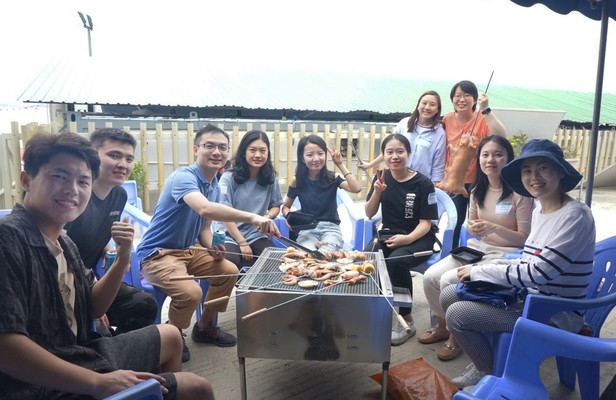Out of the 34 winning teams, four teams from HKU Business School won the championships in 2020 PwC’s STEM Challenge. The Challenge attracted 1,700 teams from 100 universities from Hong Kong, China and other countries around the globe. It aims to raise the awareness among university students, to promote firm’s diversified digital services and to demonstrate PwC as a promising platform for the STEM talents to develop their long term career.
The Challenge was divided into two rounds (First round – submission of business solutions; Final round – presentation). Both rounds were conducted via online channels due to Covid-19. Participating teams were required to choose one out of 12 topics under four major categories including Customer Experience, Operation Management, Risk Control and Product Innovation and came up with business solutions under the selected topic. Shortlisted teams researched with professional coaching from mentors and worked on the final presentation.
Sharing from the champion teams:
Team 1: 後浪中的alpha
Risk predict model based on IoT transaction data (基於物聯網的交易數據風險預警模型)
Team members:
Ms. YAO Jiaxin, BBA(Acc&Fin), Year 3
(Remarks: The team comprises two more members from other universities in Hong Kong.)
“The PwC’s STEM Challenge is an innovative case competition aimed at unleashing students’ STEM potential by developing diversified digital products and services under various scenarios. Among four categories and 12 topics about different aspects of digital innovation, our team chose Risk Predict Model based on IoT Transaction Data, which was specifically used in supply chain finance. Through joining this Challenge, we developed a deeper understanding of building smarter finance model by using different new technologies, which is also a global trend for us to get used to.
Two key takeaways:
1. Do not be afraid of big challenges, break them down into small and manageable steps, significant changes and big rewards are possible.
2. Rely on teamwork, team members from different backgrounds can provide us with opportunities to develop our product from multi-angles which increase the overall competitiveness of the product.”
Team 2: BitDynamics
Financial Companies Digital Transformation Strategy Researching (金融公司數字化轉型研究-從戰略到技術)
Team members:
Ms. HO Cheuk Yan Sabrina, BBA(Acc&Fin), Year 4
Mr. LIU Chun Kit, BBA(IS), Year 3
Mr. WONG Pak Ho, BBA(IS), Year 4
(Remarks: The team comprises one more member from other universities in Hong Kong.)
“It was our great pleasure to win the championship in the 2020 PwC’s STEM Challenge. The journey was fruitful and rewarding. Throughout the Challenge, we were encouraged to study the Hong Kong FinTech landscape and banking digital transformation trends. This led us to the realisation of the huge potential benefits that FinTech could bring to the banking industry. The task of formulating a digital transformation solution for banks also provided opportunities for us to learn the problem solving and strategic planning skills. All in all, we would like to thank PwC and our mentors for the opportunity and support.”
Team 3: The Fast and The Curious
RPA (Robotic Process Automation) technology in epidemic age (疫情時期的機器人流程化技術)
Team Members:
Mr. KALA Divyansh, BEcon&Fin, Year 3
Mr. LOHIA Saharsh, BBA(IS), Year 3
Ms. SOOD Preksha, BEcon&Fin, Year 3
(Remarks: The team comprises one more member from other HKU faculty.)
“The journey of our team, The Fast and The Curious, in the 2020 PwC’s STEM challenge was great and fulfilling. This Challenge provided us with a great platform to build and showcase our knowledge. It also allowed us to realise how RPA technology helped to reduce the risks during the pandemic. Throughout the Challenge, we received full support from PwC and our mentor who helped us set the direction for our solutions and eventually emerge as the winner.”
Team 4: STEMnovators
Lightweight dynamic cyber risk dashboard (輕量級動態網絡風險儀表應用)
Team Members:
Mr. CHEUNG Yik Fung, BBA(Acc&Fin), Year 4
Ms. HUI Yi Lam Yvonne, BBA(Law)&LLB, Year 4
Ms. LEUNG Gianna Wai Tak, BBA(Acc&Fin), Year 4
(Remarks: The team comprises one more member, Mr. KOO Chak Yin, who is HKU Business School alumni currently studying a Master programme in HKU.)
“Before joining this Challenge, even though we were interested in learning more about cybersecurity, we had no idea how and where to start. After joining this Challenge, we received valuable advice and updates from our mentor regarding cybersecurity. Our mentor also gave us feedback on our drafted dashboards which alleviated our queries and concerns on cyber risk management. The process from data research to dashboards design, and lastly to the making of website simulator was surely one of the most challenging yet rewarding experiences we have ever had so far.”
Learn more:
https://www.instagram.com/pwc_cnhk_campus/
https://www.linkedin.com/pulse/2020-pwcs-stem-challenge-participants-reward-mentors-tracy-mak/
